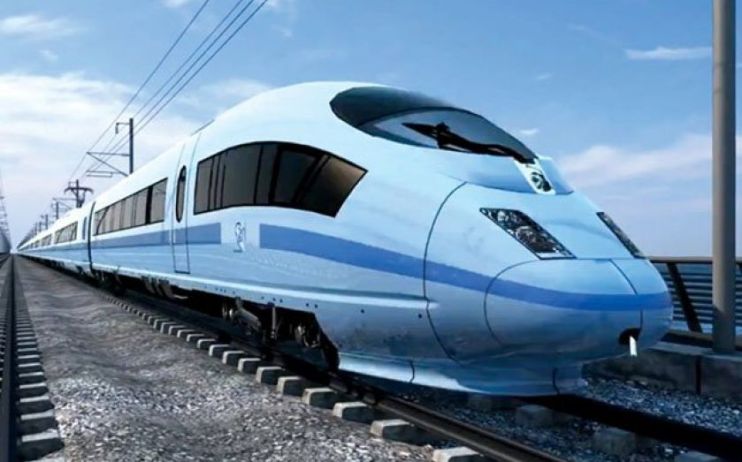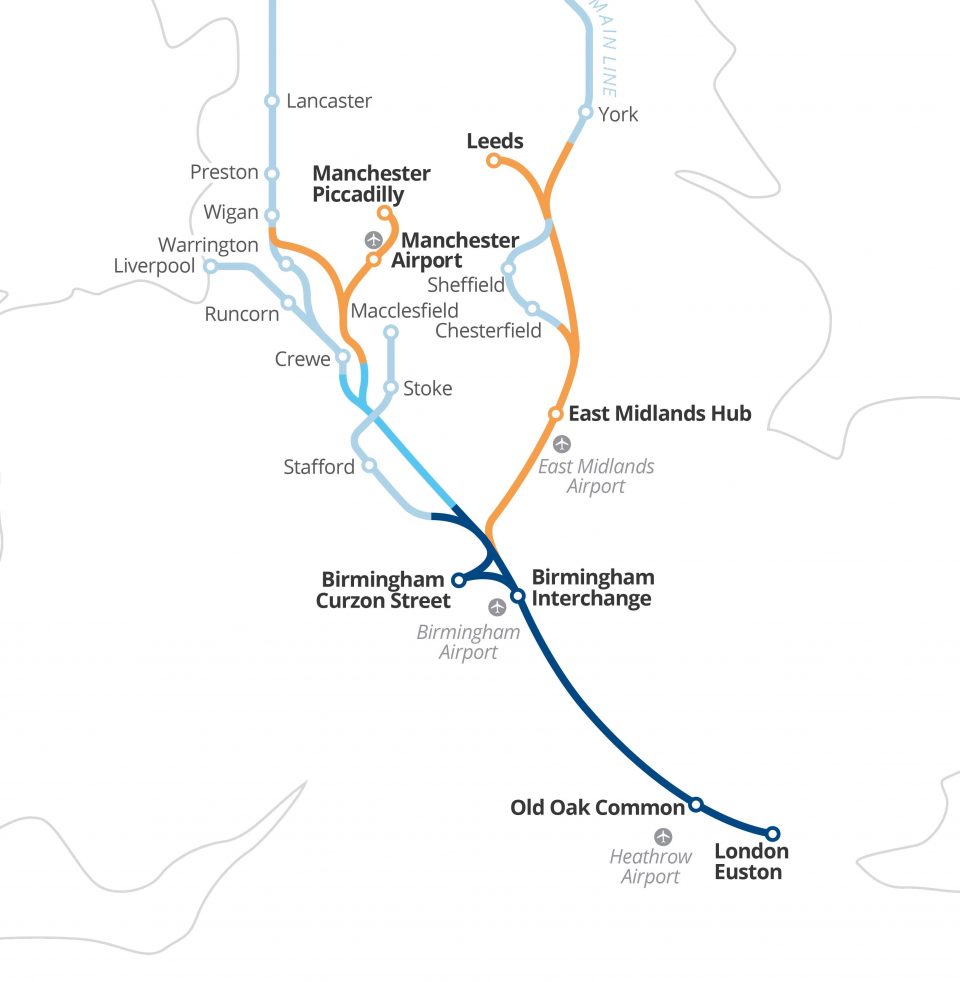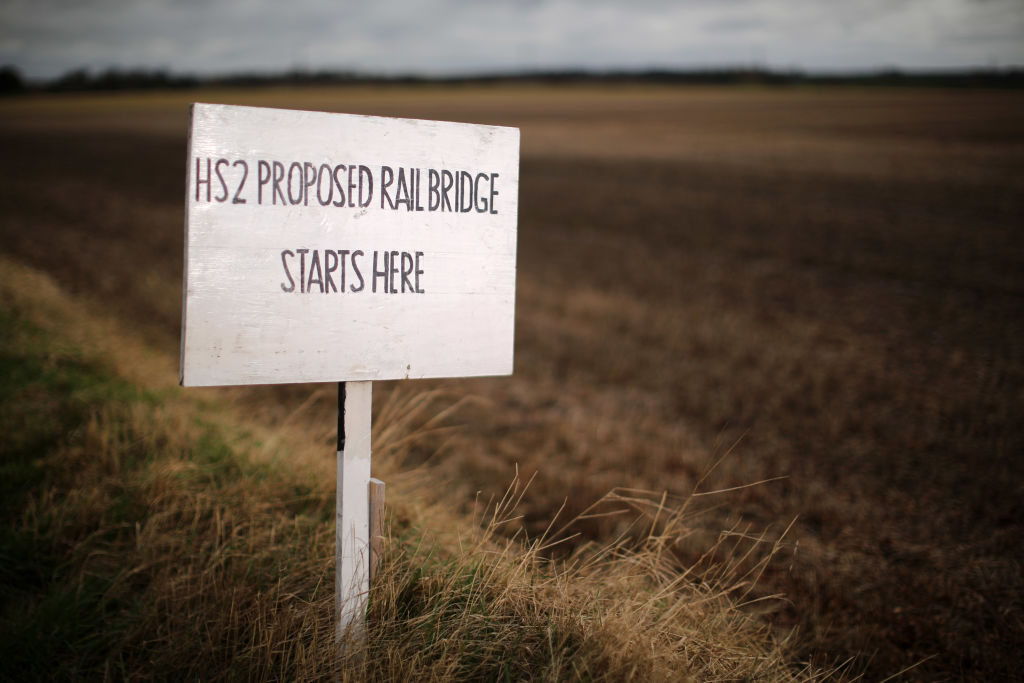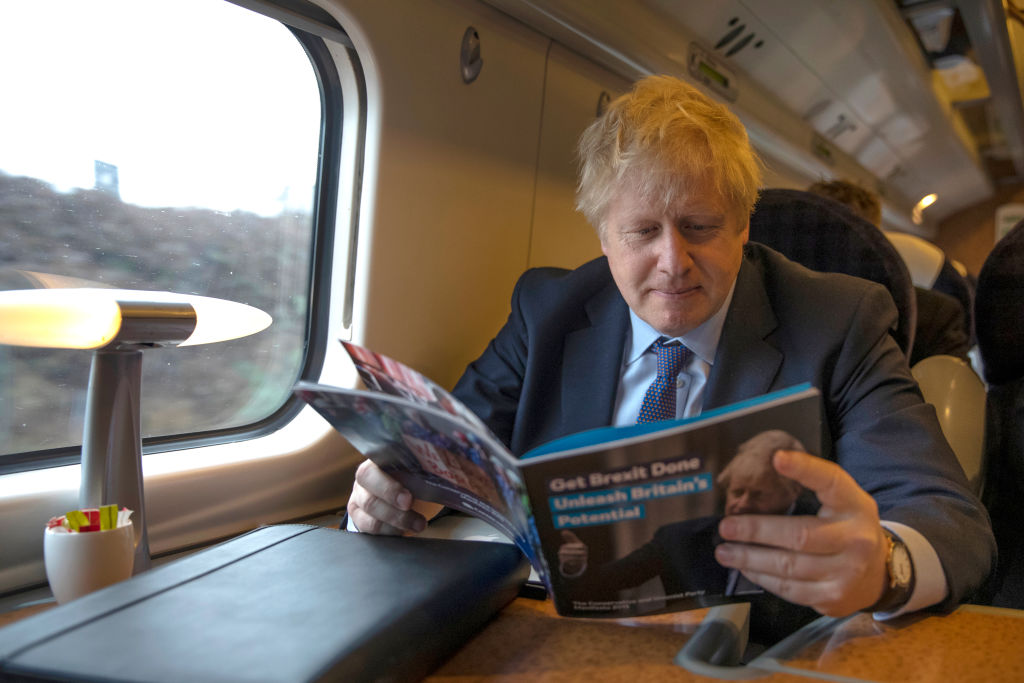HS2 Q&A: Where is the route, how much will it cost and when will it open?

Today’s forecast that the cost of HS2 could soar as high as £106bn will come as no surprise to close observers of the project.
The number, calculated by infrastructure consultant Michael Byng, is in line with Prime Minister Boris Johnson’s prediction last year that the project will come in “north of £100bn”.
But the figure – taken from a leaked copy of the government’s official review into the project – will still raise eyebrows.
So as Downing Street continues to delay its final decision on whether to build HS2 or not, here are some of the key questions and answers regarding the divisive project.
What is the HS2 route?
At first, HS2 will be a new railway between London and the west Midlands, carrying between 14 and 18 trains an hour.
This will cut journey times from one hour 21 minutes to just 52 minutes.
Trains will be able to travel at speeds of up to 250mph (more than 60mph faster than the 186mph Channel Tunnel Rail Link) and will each have up to 1,100 seats.
If the project gets the go-ahead, then the second phase will likely split into two different lines. One will travel from Birmingham to Manchester, while the other will go from Birmingham to Leeds.

Manchester to London journeys will take just one hour seven minutes (less than the current two hours seven minutes) and Birmingham to Leeds will take 49 minutes.
In turn, this will likely reduce journey times between London and Edinburgh and Glasgow by an hour – to around three hours 30 minutes.
The Department for Transport has said the project will increase the capacity of trains across the entire route by as much as three times, freeing up capacity on the busy commuter routes.
When will it open?
Who knows? Official predictions have the first section of the railway – between London and Birmingham – set to open between 2028 and 2031.
Meanwhile, the second phase to Manchester and Leeds has been pushed back to between 2035 and 2040.
That means the project could be as much as seven years overdue by the time it is completed two decades from now.
How much will it cost?
In 2019, a longstanding price tag of about £56bn was hiked to between £81bn and £88bn, as set out in a report by the current HS2 chairman Allan Cook last September.
However, according to the government’s own review, written by former chairman Douglas Oakervee, it could cost as much as £106bn.
Meanwhile Lord Tony Berkeley, who was deputy to Oakervee until late 2019, released his own dissenting report on the project. That put the price tag even higher, at £107bn.
That means the project is likely to cost more than three times as much as its original estimate of £32.7bn.

Why has it overrun so much?
A number of factors – but one key element is that the cost of buying the property and land on which HS2 will run was drastically underestimated.
Former executive Doug Thornton told BBC Panorama in December 2018 that initial estimates for this were “enormously wrong”.
Then, in 2019, a freedom of information request showed that costs for property are likely to reach £5bn – compared to an initial prediction of £1.1bn.
The project’s current chairman Allan Cook has also admitted HS2 failed to carry out extensive soil surveys, meaning digging and excavation has been far more difficult than originally hoped.
In September 2019, Cook wrote: “The original plans did not take sufficient account of the compound effect of building a high-speed line through a more densely populated country with more difficult topography than elsewhere – and doing so whilst complying with higher environmental standards.”
What is the Oakervee Review?
In August 2019, Boris Johnson tasked Doug Oakervee, the former chairman of HS2 Ltd (the company responsible for building the project), with carrying out a “go, no go” review into the entire project.
This was due to report by the end of 2019 – but a December General Election gave the government cause to delay their decision.
The Oakervee review has been hit by claims that it was rigged from the start, and that it was used by Johnson to validate pressing on with the project.
In November the deputy chair of the review, Lord Tony Berkeley, resigned, calling the process a “whitewash” and the draft report “a very good marketing document for HS2”.
However, since then, it has emerged that Oakervee is going to admit the eye-watering cost of the project could rise above £100bn.
He is also on course to recommend pausing progress on phase 2b – between Birmingham and Leeds – and review whether it would be more efficient to use conventional rail lines on that part of the route.

Is the government seriously considering scrapping it?
Probably not. Construction is well underway, and successive Conservative governments have already poured £8bn into the project.
Even at this early stage in the building of HS2, that is far more than the £5.8bn which it cost to build High Speed 1 (the stretch of railway between St Pancras International and the Channel Tunnel).
Moreover, Johnson has said he is wary of putting the project “on the scrap heap,” but has also acknowledged it is “incredibly expensive”.
On the General Election campaign trail in November 2019, he said: “I love infrastructure. The problem with HS2, is that it’s incredibly expensive.
“Instinctively I hesitate as somebody who’s done a lot of big infrastructure projects, and who’s seen the damage that can be done to the UK by delaying big infrastructure, I hesitate before just taking something like HS2 and just putting it on the scrap heap.”
Here is what the company running the project has to say about it.
What do people think of it?
HS2 has divided opinion like few other British infrastructure projects in recent years. Business groups have, by-and-large, got behind it.
In January 2020, more than 40 construction and rail industry bosses signed a letter urging the Prime Minister to “get HS2 done”.
“We want to take this opportunity to reiterate not only the devastating impact any curtailment of HS2 would have on our industry, but the detrimental effect cancellation would have on UK Plc more widely in terms of jobs, manufacturing, investment and export potential,” it said.
Meanwhile, the British Chambers of Commerce and transport group Midlands Connect have also urged the PM to go ahead with the project.
BCC director general Adam Marshall said: “This project is an investment that will transform the capacity of our railways and the potential of so many areas across the UK.
“While there can be no blank cheque, cutting the project back would put development and investment plans across the country at risk.”
Midlands Connect chairman Sir John Peace added: “To delay and downgrade HS2 north of Birmingham would be a betrayal of the Midlands and the North. We need a modern, fast and reliable railway to link our great towns and cities sustainably.”
But it has many opponents too – whose voices have only got louder with each successive increase in cost.
The loudest of those, Stop HS2, said after the Oakervee review leak: “We’ve said for a long time that there are massive problems with and within HS2 Ltd, and even the Oakervee review, led by a former chair of HS2 Ltd can’t brush them all under the carpet.”
Nick Macpherson, former Treasury permanent secretary, added: “What will it take for our political elite to accept this vanity project is not value for money? Imagine how many sensible rail and road projects could be built with the money.”